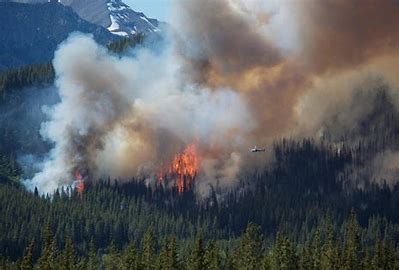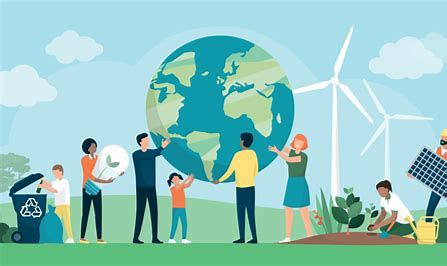Eco-anxiety: it’s a real thing, and a normal and
understandable stress response, but the problem might not be as bad as you
think.
With all the doom and gloom in the media about the devastating
effects of climate change, it is completely natural to feel worried.
In a way, it would be strange not to be concerned about the
state of our planet and the future of humanity.
Climate change has been a major global issue for decades. We
have become distracted by COVID, but even while the pandemic raged, we saw news
about climate change destruction around the world: fires, floods, droughts,
unusually severe storms.

As soon as the media on COVID calmed down, it was replaced
by fear-inducing articles about climate change. The big COP26 Climate Change
Conference in Glasgow in late 2021 also put climate change on the top of
everyone’s worry list. “This is our last chance to save the planet” was the
main theme. “We must act now or everything will be destroyed.”
Climate change makes many people more anxious than COVID
does
Not surprisingly, this news has made many people extremely
anxious. Studies have showed that even in the midst of the uncertainty of a
public health pandemic, concern about climate change significantly exceeded COVID-19.
Study authors said, “These attitudes were consistent across countries rich and
poor, big and small: from the United States and the United Kingdom to Brazil,
the Philippines, India and Nigeria.”
This fear has a name: eco-anxiety.
The American Psychological Association defines eco-anxiety
as: “the chronic fear of environmental cataclysm that comes from observing the
seemingly irrevocable impact of climate change and the associated concern for
one’s future and that of next generations”
But is it as bad as we fear?
Dr Hannah Ritchie, Senior Research Fellow at Oxford
University, says no.
In her article, Stop Telling Kids They Will Die From
Climate Change, Ritchie points out the gap between the data and the
fear-mongering.
“Let’s be clear: Climate change is one of the biggest
problems we face,” says Ritchie. “It comes with many risks – some certain, some
uncertain – and we’re not moving anywhere near fast enough to reduce emissions.
But there seems to have been a breakdown in communication of what our future
entails.”
She says things aren’t as bad as we think, and that the
media messaging of certain death is making things worse. Too many people are
claiming that humanity will be wiped out and annihilation is locked in, says
Ritchie. “The worst thing about this message is that, rather than inspiring
action, it resigns us to the falsehood that we are already too late. There is
now nothing we can do.”
Ritchie points out a few key truths:
- Although government action on climate change is moving
slowly, at least it’s moving and “at an increasing pace”.
- “Politicians might be slow, but technological change is
not.” Renewable energy such as solar and wind power is now cheaper than coal.
- Death rates from disasters have fallen significantly over
the past century. We have better technology and higher resilience to natural
disasters.

So what can we do about our own eco-anxiety?
Ecotherapist Phoenix Smith says the first step is to
acknowledge your feelings of fear and despair. These are a normal response to
this sense of crisis, and there is no point trying to inject optimism and brush
aside your negative feelings.
These feelings may be complex and intense, but only by
recognising them can you begin to address them.
Then, work on balancing your over-activated nervous system.
Try deep breathing mediation or yoga, and if you can, getting out into nature.